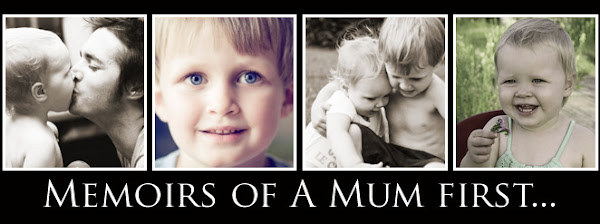Today marked the fourth and final session of my Triple P Parenting Course. Today’s session dealt with ‘Planning Ahead’ – managing high risk situations such as shopping trips, family outings, telephone conversations etc.
I’ll be honest and say, that I could have done with this session last week (although after today’s session I am still a little unclear about what I should have done). I failed to mention this earlier but last week when we were out shopping – the day after the infamous bolting exercise – Byron proceeded to say the ‘F’ word out loud (more then once) for all the world to hear. We were in Toys R Us, so as you can imagine there were other parents around and of course other kids.
It goes with out saying that I got a few good ‘death stares’ from other parents. If I was following the PPP program I should have implemented the "planned ignoring" technique and just ignored what he was saying. However, feeling scrutiny all around, I quickly jumped in and ‘chastised’ him for using naughty words – ie. Giving him the attention he was trying to gain. I felt that if I had just ignored him, it would have looked like (to other people) I had accepted the behaviour as being OK, when really this is not the case. Mental note for future reference...don’t worry about what other people think!
In short, it seems that parents should plan ahead for high risk situations. The main idea being that if you plan stimulating and engaging activities for your child in situations where they might otherwise be bored and disruptive, you are likely to prevent problems from occurring. Better yet...our facilitator said, that if you think there will be big dramas (like at the shops) just don’t take them!
Apparently, the following steps will form the basis of your plan for dealing with high risk situations:
• Prepare in advance – have everything ready that you will need for a situation, such as rewards and snacks. Also, plan your trips to avoid disrupting your child’s routine, such as usual mealtimes and sleep times.
• Talk about rules – prepare you child in advance by describing what is going to happen. Decide on rules for appropriate behaviour in a situation and discuss those rules in a relaxed way with your child. Examples for travelling in the car might include: keeping your seat-belt on, using a quiet voice and keeping your hands and feet to yourself; Whilst shopping the rules might include: staying close to the trolley (or in my case ME), only touching things when mummy and daddy say its ok, and walking down the isles. Just prior to entering a high risk situation, remind your child of the rules.
• Select engaging activities – make a list of activities you can use to keep your child entertained. Try to make use of naturally occurring opportunities for fun (eg. Talk to your child and ask them questions, count things you see, help them select your groceries etc).
• Use rewards for appropriate behaviour – list rewards (which are practical and immediate) your child can receive for following the rules. Explain the rewards to your child when you are explaining the rules. Always remember to praise your child often for appropriate behaviour in the high risk situation and give the back-up rewards if the rules are followed.
• Use consequences for misbehaviour – list the consequences (that are practical and immediate) your child can expect for failing to follow the rules and explain these consequences to your child. Examples might include ‘quiet time’ at the shops where your child must sit quietly at the front of the store or in an aisle, or in a trolley. If behaviour gets worse, you might have to sit your child in the car for time out, while you wait nearby. It might also be useful to provide the consequences at a more opportune time – like when you get home...but always tell your child this is what will be happening and why.
• Hold a follow-up discussion – after a high risk situation, review how things went with your child. Praise your child for following the rules, and if necessary, describe one rule your child forgot to follow. Discuss anything either you or your child feel needs to be changed, and set a goal for the next time the same high risk situation occurs (eg. "You did really well staying close to me while we were at the bank today, but next time let’s see if you can remember to use a quiet voice in the bank").
I guess, what I learnt today is that you can implement the techniques we gained from previous sessions with a little bit of modification and of course a little bit of confidence in your ability to succeed in managing those high risk situations wouldn't go astray . I guess ultimately, we shouldn’t worry about what other people think and just get on with parenting.
I can't promise anything...but I will definitely give it a go!
Byronism of the day...
Trevor and I were up stairs whilst Byron was downstairs playing with his Lego. He was singing and chatting to himself non stop. Trevor joked that someone must have slipped him a kiddie drug (Ritalin) or something...he literally wasn’t coming up for air! Anyway I went downstairs and what do you know, there was Lego and blocks strewn everywhere. So, I asked Byron to clean up his blocks. His response was "no mummy, you do it all by yourself and I will be so proud!". Needless to say, Trevor and I were in hysterics and of course I packed up the blocks but he helped with the Lego.
Wednesday, August 09, 2006
Planning Ahead
Posted by
Nicole
at
10:02:00 PM
![]()
Subscribe to:
Post Comments (Atom)







No comments:
Post a Comment